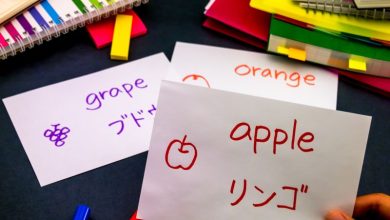Tomorrow Schools report ticks the right boxes for edu bodies

The Tomorrow’s Schools Independent Taskforce reported back with proposals for significant changes to the way our education system is run and education industry bodies have voiced their support.
“This is putting children’s wellbeing back at the heart of education – which is what we have been saying for a very long time. It redefines what success looks like for kids and has a big focus on equity,” says NZEI Te Riu Roa President Lynda Stuart.
“This is a big, bold and brave move from the taskforce and we welcome it. We are excited by the opportunities that it presents.”
Ms Stuart says she was particularly pleased that the role of school support staff had been recognised.
“The report says that their status and roles (and the skills that they bring) have been a lost opportunity for schools and this report recommends that there be a career pathway for them.”
Acting Chief Human Rights Commissioner Paula Tesoriero says the recommendations in the report are an opportunity to create an education system that is innovative, flexible and focused on collaboration rather than in competition.
“I’m excited by the potential that the recommendations offer for all groups that the report acknowledges the current system is not working well for,” says Ms Tesoriero.
“I am looking forward to engaging with the detail around how the proposals will work in practice.”
Acting Chief Human Rights Commissioner Paula Tesoriero
“As the Disability Rights Commissioner, I will be looking at the details in the report to ensure that the rights of all disabled children are fully realised in our education system.
“I am pleased that there is an opportunity for people to provide feedback to the Taskforce. I encourage New Zealanders to engage in the report and its recommendations and to feel confident that these reforms deliver the systemic change needed.”
Whetu Cormick, NZPF President added: The recommendations in this report are based on a sound set of values which will determine the long-term future direction of education in New Zealand. What is important now is that those values remain connected to the recommendations as we move into the implementation phase.”
“We obviously need to look at the finer details of the whole report, and we have lots of questions, but it is a great start.”
NZEI Te Riu Roa President Lynda Stuart
Māori is strongly embedded throughout the report
“It is pleasing to see that the Treaty of Waitangi and true partnership with Māori is strongly embedded throughout the report, so rather than seeing Māori as a problem to be fixed, they will be seen as equal participants. Our young Māori people will now be educated in a way that is consistent with their cultural beliefs and practices,” said Cormick.
Structurally, the recommendation to introduce hubs between the school Boards and the Ministry has drawn most attention.
“Hubs are a new concept for us,” said Cormick, “and they make a lot of sense if they allow our school Boards of Trustees to focus on children’s learning and wellbeing which are the reasons most parents offer their services in the first place,” he said.
“Parents want to help schools provide successful education and support programmes for all children and not have to spend their time discussing legal, compliance and property issues which are better sorted by those with a specialist focus,” he said.
Following the report will be a further consultation period during which the profession and the public can examine the recommendations more deeply and visualise how they might be translated into practice.
“There are still many detail questions to ask,’ said Cormick. ‘Whilst there are exciting possibilities such as professionals having revolving roles within the hub system in future, we need certainty about where all the people will come from to staff the hubs,” he said.
It is understood hubs will comprise equal numbers of practising professionals and business and community members.
“We already have challenges meeting staff shortages in the immediate future and much work would need to be done to attract a good balance of professionals, business people and community members all eager to adopt and work to the set of values outlined in the report.”
The report does not detail costings of the new system.
“At this stage we don’t know whether there is sufficient money in the education budget to support the work of the hubs. These and other details will need to be thrashed out during the next consultation phase,” he said.
Some of the key recommendations include:
- That school boards be reoriented so that their core responsibilities are the strategic and annual plans, student success and wellbeing, curriculum and assessment.
- Education hubs would be established and will assume all the legal responsibilities and liabilities held by school boards with delegation back to principals and tumuaki
- Need for a national school network strategy including a dedicated pathway for Kaupapa Maori and to support Maori language provision
- Enrolment schemes must be fair and equitable
- Learning support would be provided through education hubs
- Teaching Council will work with ITE providers to ensure better preparation of teachers regarding learning needs and inclusion
- Viable pathways for the development, and enhanced status, of paraprofessionals (support staff)
- Recruit a diversity of teachers and guarantee employment for new teachers
- Equity resourcing to increase to 6% of total resourcing









